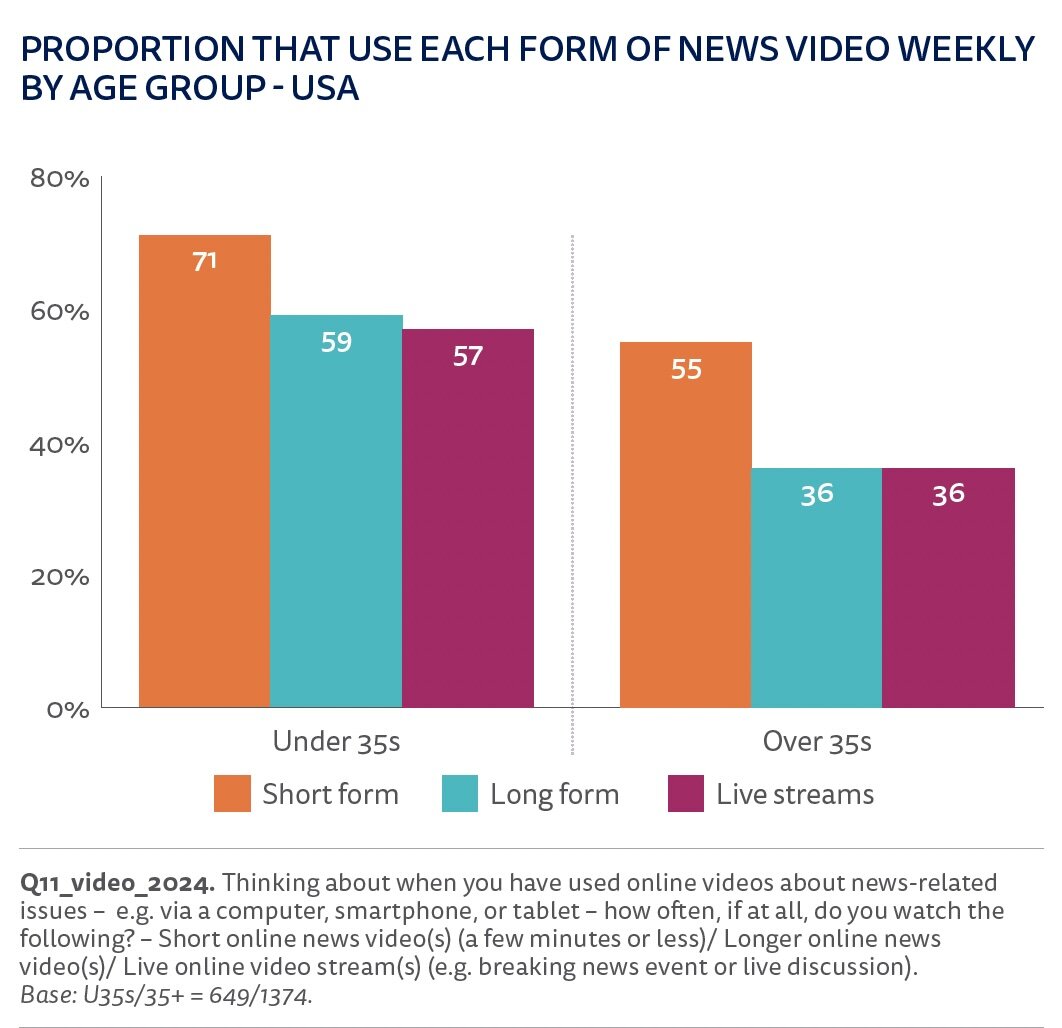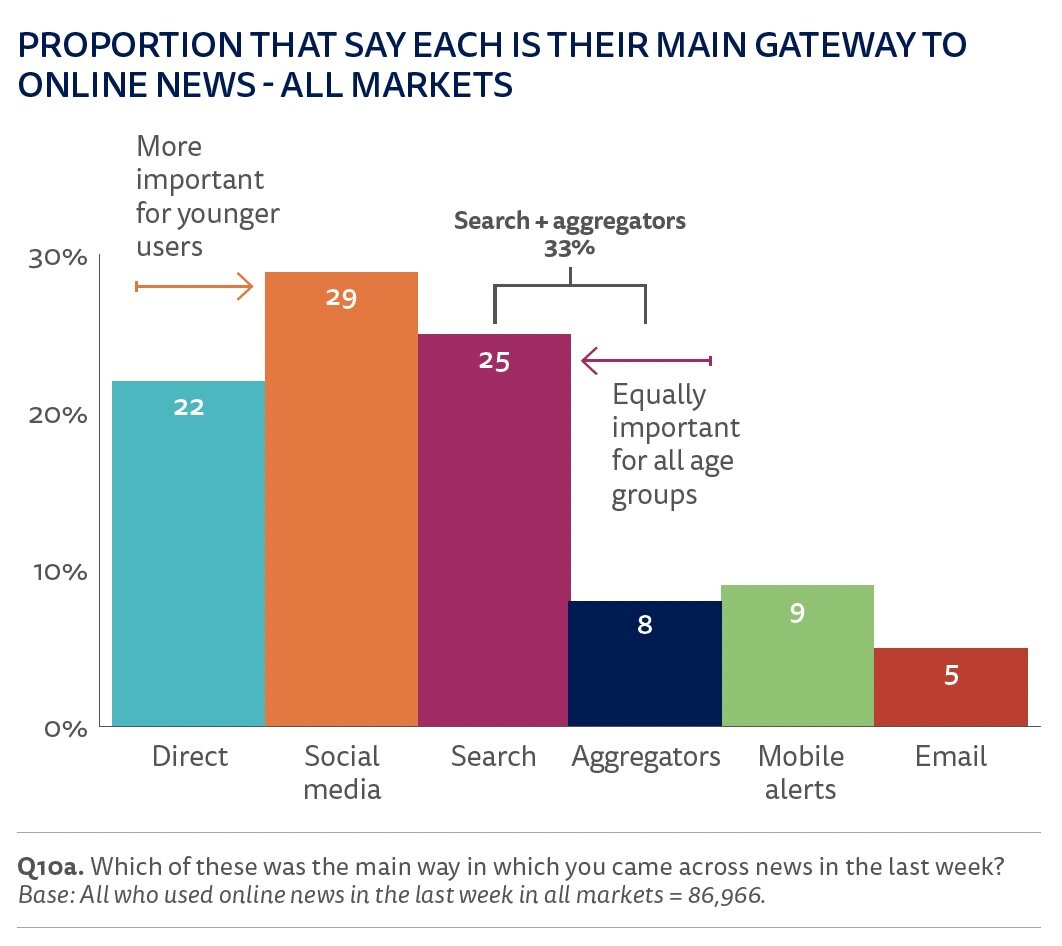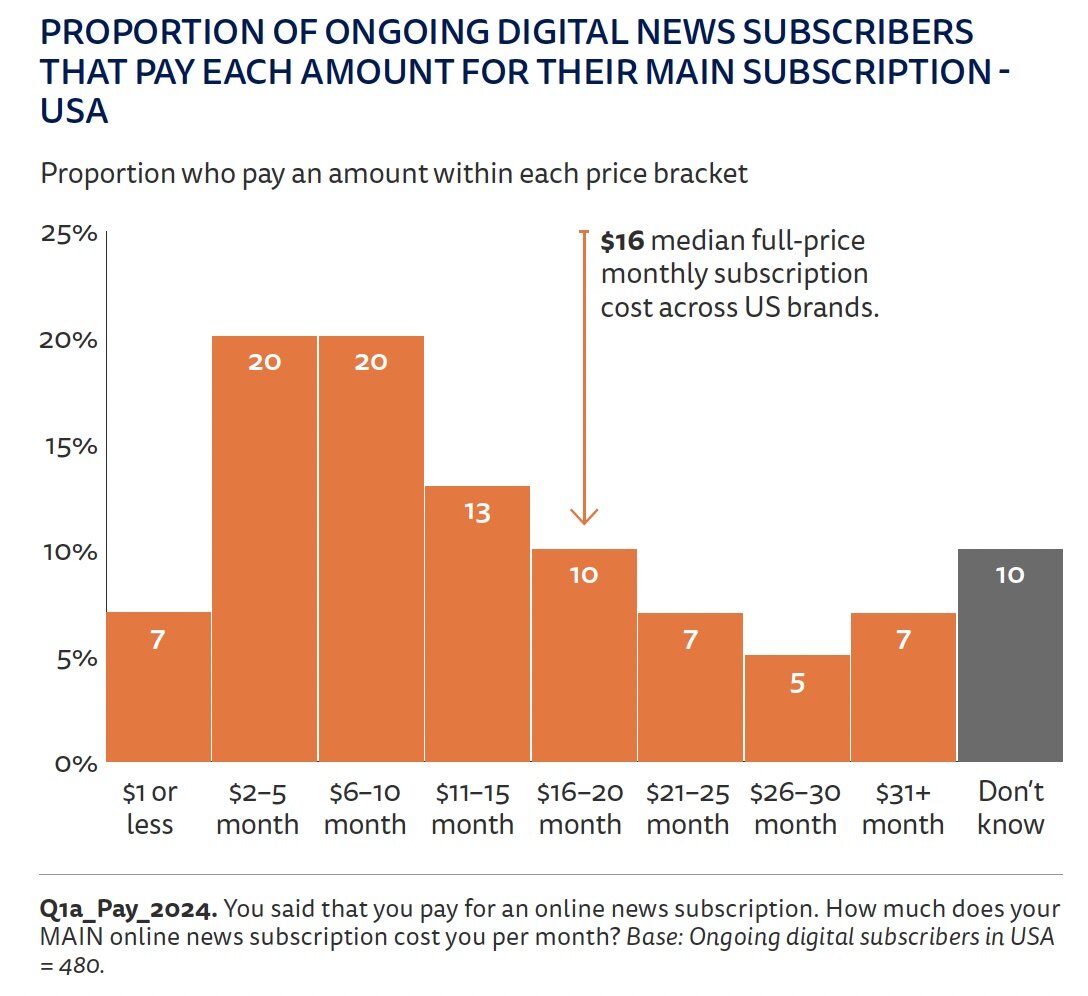The Reuters Institute Digital News Report is perhaps the most highly anticipated annual study of news publishing and audience trends. It’s a deeply researched look at current challenges and dilemmas news media publishers face around the world — and the public’s opinions about them. The study is supported by a long list of international sponsors, including the Google News Initiative.
The 2024 Report is built on surveys of more than 95,000 respondents across 47 global markets, using an online questionnaire deployed by YouGov in January and February 2024. Respondents were asked about critical topics, such as trust in news; public attitudes about AI used to produce news; what news audience value and need; how they’re finding news; and who is paying for it (and how much). You can read the 168-page report here. And here are E&P’s five most critical takeaways from the data:
#1: Think about how you can calm your audience’s “fake news” fears. “Across markets, the proportion of our respondents that say they are worried about what is real and what is fake on the internet overall is up 3pp from 56% to 59%,” the survey revealed. It was even higher — 72% — in the United States.
An interesting facet of their findings indicated, “audience concerns about misinformation are often driven less by news that is completely ‘made up’ and more about seeing opinions and agendas that they may disagree with — as well as journalism they regard as superficial and unsubstantiated.”
The good news for the U.S. is that “trust in news” didn’t measurably decline since the RISJ 2023. Looking at news across all platforms, local TV news (62%) and local newspapers (61%) still rank as the most trusted.
#2: Produce video.
We’ve all heard this advice before. For a decade, video has been seen as way to engage an audience that’s grown accustomed to viewing news, not just reading it. And the 2024 study indicates that audience desire grows.
The Report’s authors explained that “video is becoming a more important source of online news, especially with younger groups. Short news videos are accessed by two-thirds (66%) of our sample each week, with longer formats attracting around half (51%).”
Even podcasting is moving away from a pure audio platform to video.
“News podcasting remains a bright spot for publishers, attracting younger, well-educated audiences but is a minority activity overall,” the researchers found. “Across a basket of 20 countries, just over a third (35%) access a podcast monthly, with 13% accessing a show related to news and current affairs. Many of the most popular podcasts are now filmed and distributed via video platforms such as YouTube and TikTok.” Credit: Reuters Institute Digital News Report 2024
Credit: Reuters Institute Digital News Report 2024
#3: Rethink (and reinvest in) your social strategy.
As the 2024 report indicates, platforms like Facebook and X, which were once dominate players in how people were introduced to news stories, are becoming less prominent players in the distribution of news. That’s attributed to a number of factors — changes in algorithms, especially for political news; a sense of distrust in news shared there; news avoidance and fatigue; and younger audiences’ preferences for video platforms, such as TikTok, YouTube and Instagram.
Still, overall and across all markets surveyed, social media platforms remain the most popular “gateway” to news content, especially with younger audiences.
 Credit: Reuters Institute Digital News Report 2024
Credit: Reuters Institute Digital News Report 2024
#4: Be intentional about your AI policies and disclosures.
“Overall, we are still at the early stages of journalists’ usage of AI, but this also makes it a time of maximum risk for news organizations. Our data suggest that audiences are still deeply ambivalent about the use of the technology, which means that publishers need to be extremely cautious about where and how they deploy it,” the researchers advised.
The data expressly indicated that respondents are more comfortable with AI being used for productivity gains — for example, transcription or creating summaries of information — than when it is used to generate content.
There is less consensus about how news media publishers should disclose their uses of AI. Though pure transparency is ethically sound, news outlets can’t be assured that disclosure improves the level of trust their audience feels about their work.
“On the one hand, providing transparency about how they are using AI may help manage expectations and show good faith,” the researchers found. “On the other hand, to the extent that audiences distrust AI technologies, simply knowing news organisations are using could diminish trust.”
“Excessive or vague labelling may scare off individuals with already low trust and/or those with limited knowledge about what these uses entail, who will likely default to negative assumptions,” the authors warned.
#5: Consider subscription pricing and special offers in context to long-term retention.
Ask most people in news who were in the business when the internet made its debut, and they’ll likely lament that the industry made a critical mistake in devaluing its product by giving news away for free in the interest of growing digital audiences. The RISJ research shows the news media industry hasn’t dug its way out of that hole yet.
“A major reason many people may not be paying the full asking price … is the fact that many news brands offer discounts and trials as a way to encourage people to sign up. This has been an effective strategy for many news brands looking to build their subscriber base by offering readers a chance to try things out and see what their brand is all about,” the researchers explained.
 Credit: Reuters Institute Digital News Report 2024
Credit: Reuters Institute Digital News Report 2024
However, a heavily discounted entry rate doesn’t often translate to full-value subscription conversion. “The jump from a cheap trial to full price is often too much for many,” they found. “Trial subscribers may not also continue to full price if they didn’t get into the habit of using their subscription.”
Comments
No comments on this item Please log in to comment by clicking here